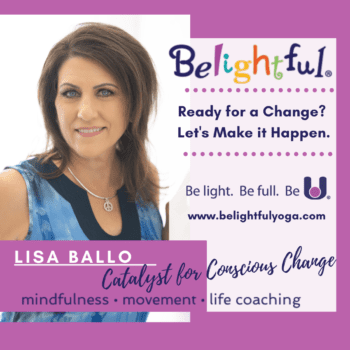Setting boundaries without guilt can feel next to impossible. And that’s okay. Many people feel this way. But the more you do it, the more habitual it becomes.
So if you’re someone who frequently finds yourself torn between helping others and protecting yourself, remember that your peace matters. Maintaining your energy and well-being should be a priority in your commitment to help others.
And setting boundaries is one of the most compassionate ways to do this.
Setting Boundaries Without Guilt Is a Practice
As a perpetual helper, you’re likely to find that setting and maintaining boundaries can create a sense of guilt. This is normal.
You may experience this because boundaries are a new concept to you or those around you. Perhaps you or they were raised in an environment where boundaries weren’t used or respected.
It could be that someone in the past had a negative reaction to a boundary you set. Or sometimes it’s just the inability to put you or your needs first. Whatever the case, boundaries have taken on a negative hue for you.
So let’s reframe them.
Though it may not seem this way, boundaries are about love. They’re not about depriving someone or being selfish. When you choose to protect your peace and not enable another, you’re showing love for yourself. It may seem the opposite to you though. Especially if you learned that putting yourself first is selfish.

But here’s the thing: self-care is not selfish. And setting boundaries is a way of taking care of yourself while improving your relationships with others. So when you feel the guilt seeping in, remember that you set boundaries to protect your health. You did what you were able to do, and that has to be enough. Acknowledge your progress or efforts and allow yourself some peace. There’s no sense in letting guilt weigh you down.
Managing Challenges to Your Boundaries
Setting healthy boundaries is a powerful way to protect your mental and emotional well-being. This ultimate act of self-care is one of the most effective ways to foster healthier relationships.
That being said, there will likely be some people in your circle of care who don’t exactly see it that way. They may struggle with these new parameters. So remember that a boundary is only a boundary if you continue to enforce it.
The following will help you to hold your resolve:
1. Stay Consistent
When you first start setting boundaries, the people with whom you’re setting them may struggle. Especially if they’re accustomed to a certain and long-held dynamic between the two of you. They may take it personally or think that they’re losing you.
By staying consistent with the boundaries you set and not floundering when things get difficult, they’ll more easily adjust to the changes and hopefully begin to recognize that healthy relationships are based on respect for mutual needs. The way they grow is through clear and respectful communication.

2. Hold Firm and Don’t Apologize
You may find that those who’ve had unlimited access to you will resist or even test the boundaries you’ve set. In these cases, you may need to acknowledge their disappointment while explaining that you’re sticking with your boundary and that that’s not going to change. From there it’s out of your hands. You can’t control their reaction.
Furthermore, the tendency to apologize for prioritizing your needs might be strong. Especially at first. But you don’t need to justify yourself. Simply stating that you are not available or cannot commit to something does not make you a criminal. At all.
3. Expect Some Emotional Reactions
Setting boundaries is likely to make some people feel they’re being pushed away or even punished. You may have to regularly acknowledge their feelings and remind them that you still care for them while maintaining your boundary.
In some cases, they may insist they cannot accept these new terms. Which brings us to our final point…
4. Recognize When You’re Being Manipulated

Once you’ve set your boundaries, clearly communicated the reasons, and worked through any potential emotional backlash, things should settle down a bit.
However, if anyone tries to pressure you into getting rid of the boundaries or intentionally makes you feel guilty about setting them, it may be time to reconsider their role in your life. Statements like “You’ve changed” or “I thought we were close” are certain red flags.
Ready to Get Started?
Setting boundaries without guilt can be really difficult. But the payoff is worth it; both for you and the other person or people.
If you’re still uncertain you can do it alone, we’re here for you!
Contact us today to take advantage of our life coaching services. We’ll help you gain new insights in your practice of setting boundaries, while supporting you every step of the way.



